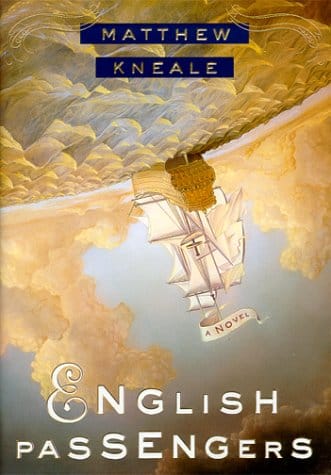Literature ATAR on Kneale

Why does Tasmania have zero indigenous people left?
The short answer: Genocide.
The long answer: We don't know.
This unknown continues to intrigue writers of Australia, and they continue to create particular representations of people and/or places during this colonial era to make scathing remarks about our nation's past.
Hello everyone! 🙋♀️Welcome back to a new post and thank you for listening 🙉 to my rants about thought-provoking pieces of literature. 🥰 If it helps, today's post is a bit different – it's a copy of the introduction and first body paragraph in a high-scoring essay I wrote for Year 12 Literature ATAR, and thus the format, structure, content, language, etc. used will be in greater alignment with the syllabus. 📑 I hope this is helpful for you ☺️☺️
The question I sought to answer is:
The impact of a literary work can sometimes be attributed to the way a writer has used language to create particular representations of people and/or places. Explore this idea referring in detail to at least one literary work you have studied.
The impact of literary works on their readers can be largely attributed to the construction of people and places in these works. Matthew Kneale's post-colonial novel, English Passengers (2000), is an impactful work of prose that follows at least 20 characters to reveal the true horrors of colonisation.
Set in Tasmania during the height of European colonisation, this acerbic story represents coloniser characters as elitist and ignorant, and colonised characters as courageous yet disempowered to reflect Kneale's criticism of colonialism.
English Passengers, through the use of characterisation and imagery to depict setting, (1) condemns the colonial mission as self-serving and self-deluding, (2) criticises how colonisation degrades the cultural identities of Indigenous peoples, and (3) raises awareness on the devastating effects of colonisation that are still pertinent today.
Ultimately, Kneale's novels underscores the history of colonisation in Australia, and calls attention to its modern reverberations.
English Passengers strongly influences readers to appreciate, and come to condemn colonial conquests as self-serving and self-deluding.
The novel represents colonisers as similarly self-serving, and ignorant of the pain and suffering colonisation has wrought upon Indigenous peoples. George Alder, the Governor of Tasmania, writes in a letter,
The blacks have no comprehension of what I may term system, this being the very root of order... they have likewise maintained a savage resistance.
Alder's perspective, which characterises Indigenous peoples as 'savage' and unintelligent through administrative discourse, is juxtaposed with the much more emotionally impactful narratives depicting the suffering of Indigenous peoples - for instance, one noting the aftermath of the genocide:
Smashed limbs. Smashed heads. Insides spilled. All was the brightest redness...
The combination of sibilance and short syntax in this narrative depicting the cruelty of colonisers makes the gruesome visual imagery of the Indigenous peoples dead remains seem more visceral, and thus makes the novel's message, ones that condemns the self-deluding nature of colonisation, much more moving/impactful.
This self-deluding and even deceptive characterisation of the colonisers' attitudes in English Passengers has been greatly impactful in helping me appreciate Kneale's condemnation of colonisation as untruthful and self-serving.
Wanna hear more about 'English Passengers'? Subscribe to get updates! It's free, and I would love to hear your thoughts as well. 🤗 🤗
